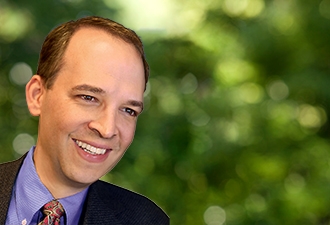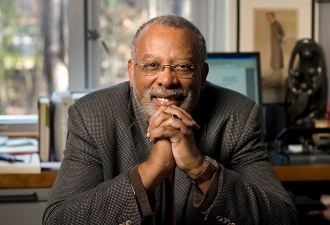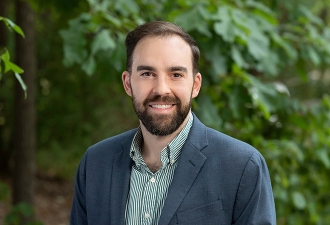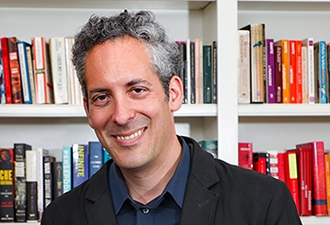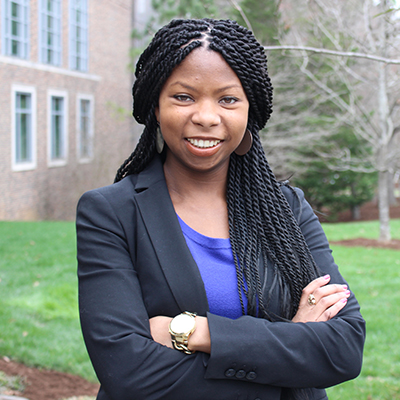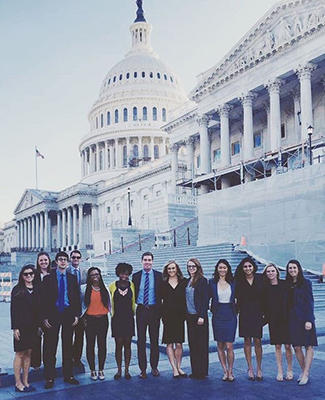Constitutional Law and Civil Rights
The U.S. Constitution is the cornerstone of all the nation’s laws, individual rights, and structure of government. It is also an important focus of Duke Law School's teaching and research.
For students, Constitutional Law is a foundational course in the first-year curriculum. Second- and third-year students can choose courses in specific areas of constitutional theory, doctrine, or practice, from civil rights litigation to the First and Second Amendments. And all students can explore constitutional issues through student organizations, journals, clinics, research centers, internships, and externships.
Duke Law faculty scholars bring a diversity of viewpoints and a wealth of practical expertise to their teaching and scholarship on constitutional matters. Most began their careers by clerking on federal courts and many have served at the highest levels of the legislative and executive branches of the U.S. government — as presidential advisors or counsel to lawmakers and congressional committees, federal agencies, or branches of the military — and as litigators and advocates both in and out of government. They are well-known for seminal research and writing on issues vital to the functioning of our democracy such as the separation of powers, the rule of law, and civil liberties and are sought-after commentators in the media and other public venues.
Featured Faculty
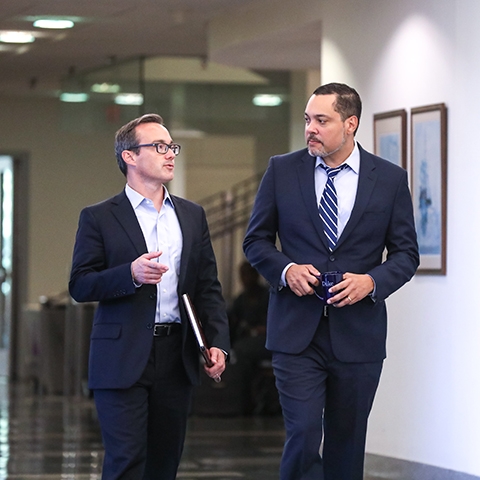
Joseph Blocher and Darrell A.H. Miller
Lanty L. Smith ’67 Professor of Law
Melvin G. Shimm Professor of Law
Professors Blocher and Miller, who co-direct the Duke Center on Firearms Law, are leading scholars of the Second Amendment. They are co-authors of The Positive Second Amendment: Rights, Regulation, and the Future of Heller as well as a forthcoming casebook on firearms law, tentatively titled The Second Amendment: Gun Rights and Regulation. They are frequently quoted in national and international media, and the center's scholarship was cited in a quarter of the 84 briefs filed in New York State Rifle & Pistol Assn., Inc. v. Bruen, the first major gun rights case decided by the Supreme Court in over a decade.
More Faculty
Selected Courses
334 Civil Rights Litigation
This course focuses on section 1983 of the United States Code, a Reconstruction-era statute that enables private parties to sue any other person who "under color" of law deprives them of the "rights, privileges, or immunities secured by the Constitution and laws" of the United States. Class participants will become familiar with the theoretical, procedural, and practical aspects of civil rights litigation, including constitutional and statutory claims, defenses and immunities, and available remedies, including attorney fees. Related U.S. Code provisions concerning discrimination in housing, contractual relations, employment, and voting are examined where relevant.
342 Federal Courts
The course considers the structure and powers of the federal courts and their relationship to the political branches and the state courts. The topics covered include justiciability, congressional authority to define and limit federal court jurisdiction, federal common law and implied rights of action, the application of state law in federal courts under the Erie doctrine, civil rights actions and immunities of state officials and governments, and habeas corpus. The focus of the course is on structural constitutional considerations relating to both the separation of powers between the three branches of the national government as well as the federalism relationship between the national government and the state governments.
363 Legislation and Statutory Interpretation
Legislation is one of the most important forms of law in modern American society. Indeed, it has been said that we are living in an 'age of statutes.' Almost every aspect of legal practice involves construction of statutes, whether defining the jurisdiction of the courts or establishing the norms to which society must conform. In this course, we will examine the legal theory and practice of the making and enforcement of statutes. The course will begin with a study of the legislative process, with special attention to theories that seek to understand why some bills succeed where others fail. The next unit of the course will consider statutes as a unique source of law, comparing them to the common law and the Constitution. We will then move to the heart of the course, which will focus on how judges and other legal actors (agencies, enforcers, etc.) interpret statutes.
556 Second Amendment: History, Theory, and Practice
The Supreme Court's decisions in District of Columbia v. Heller and McDonald v. City of Chicago have ushered in a whole new era of Second Amendment theory, litigation, and politics. Current events keep issues of firearms, gun violence, gun safety, and self-defense constantly in the news. This seminar will explore the Second Amendment and the various state constitutional analogs historically, theoretically, and pragmatically. Students will be introduced to the historical and public policy materials surrounding the Second Amendment, the regulatory environment concerning firearms, and the political and legal issues pertaining to firearm rights-enforcement and policy design.
758 Originalism and Its Discontents
Originalism is a major school of constitutional interpretation and an important field of study. Legal discussions and public debates regularly feature originalist arguments or criticisms of originalism. To engage these arguments, lawyers and citizens need to weigh the merits of a diverse set of originalist theories. This course is designed to acquaint you with originalist and nonoriginalist arguments; enable you to assess their strengths; and give you an opportunity to sharpen your own views.
334 Civil Rights Litigation
This course focuses on section 1983 of the United States Code, a Reconstruction-era statute that enables private parties to sue any other person who "under color" of law deprives them of the "rights, privileges, or immunities secured by the Constitution and laws" of the United States. Class participants will become familiar with the theoretical, procedural, and practical aspects of civil rights litigation, including constitutional and statutory claims, defenses and immunities, and available remedies, including attorney fees. Related U.S. Code provisions concerning discrimination in housing, contractual relations, employment, and voting are examined where relevant.
342 Federal Courts
The course considers the structure and powers of the federal courts and their relationship to the political branches and the state courts. The topics covered include justiciability, congressional authority to define and limit federal court jurisdiction, federal common law and implied rights of action, the application of state law in federal courts under the Erie doctrine, civil rights actions and immunities of state officials and governments, and habeas corpus. The focus of the course is on structural constitutional considerations relating to both the separation of powers between the three branches of the national government as well as the federalism relationship between the national government and the state governments.
363 Legislation and Statutory Interpretation
Legislation is one of the most important forms of law in modern American society. Indeed, it has been said that we are living in an 'age of statutes.' Almost every aspect of legal practice involves construction of statutes, whether defining the jurisdiction of the courts or establishing the norms to which society must conform. In this course, we will examine the legal theory and practice of the making and enforcement of statutes. The course will begin with a study of the legislative process, with special attention to theories that seek to understand why some bills succeed where others fail. The next unit of the course will consider statutes as a unique source of law, comparing them to the common law and the Constitution. We will then move to the heart of the course, which will focus on how judges and other legal actors (agencies, enforcers, etc.) interpret statutes.
556 Second Amendment: History, Theory, and Practice
The Supreme Court's decisions in District of Columbia v. Heller and McDonald v. City of Chicago have ushered in a whole new era of Second Amendment theory, litigation, and politics. Current events keep issues of firearms, gun violence, gun safety, and self-defense constantly in the news. This seminar will explore the Second Amendment and the various state constitutional analogs historically, theoretically, and pragmatically. Students will be introduced to the historical and public policy materials surrounding the Second Amendment, the regulatory environment concerning firearms, and the political and legal issues pertaining to firearm rights-enforcement and policy design.
758 Originalism and Its Discontents
Originalism is a major school of constitutional interpretation and an important field of study. Legal discussions and public debates regularly feature originalist arguments or criticisms of originalism. To engage these arguments, lawyers and citizens need to weigh the merits of a diverse set of originalist theories. This course is designed to acquaint you with originalist and nonoriginalist arguments; enable you to assess their strengths; and give you an opportunity to sharpen your own views.
First Amendment Clinic
The public mission of the First Amendment Clinic at Duke Law is to protect and advance the freedoms of speech, press, assembly, and petition. Students have the opportunity to work directly with clients facing free expression concerns, including defamation, content-discrimination, and reporter’s privilege. The clinic also provides commentary and legal analysis on pending or enacted legislation that implicates First Amendment freedoms, and other governmental as well as academic developments.
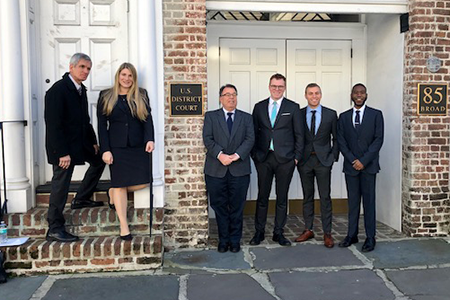
Meet Neil Joseph '20

Neil was part of a First Amendment Clinic team that won a federal defamation case, defending the clinic's client against a $110 million lawsuit for comments he made on Facebook and a newspaper website. Neil helped draft the summary judgment brief and prepared to argue the motion when the court decided to rule on the briefs in light of the COVID-19 pandemic. Neil also served as editor-in-chief of the Duke Journal of Constitutional Law and Public Policy, an editor for Judicature, secretary of the Duke Bar Association, a member of the Moot Court Board, and a LEAD Fellow, and he had an externship with the N.C. Solicitor General's Office. He's now an associate with Kirkland & Ellis in Washington, D.C.
[The clinic's faculty] invested much time and effort into making our case the best it could be, going over countless drafts of briefs, hours of practice of oral argument, and numerous discussions about defense strategy, while also empowering us. I felt like an integral part of a team.

